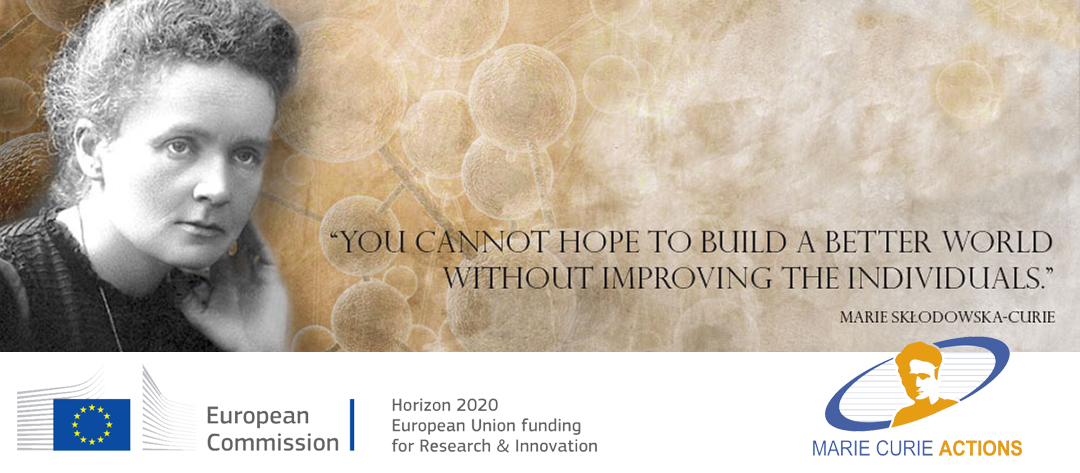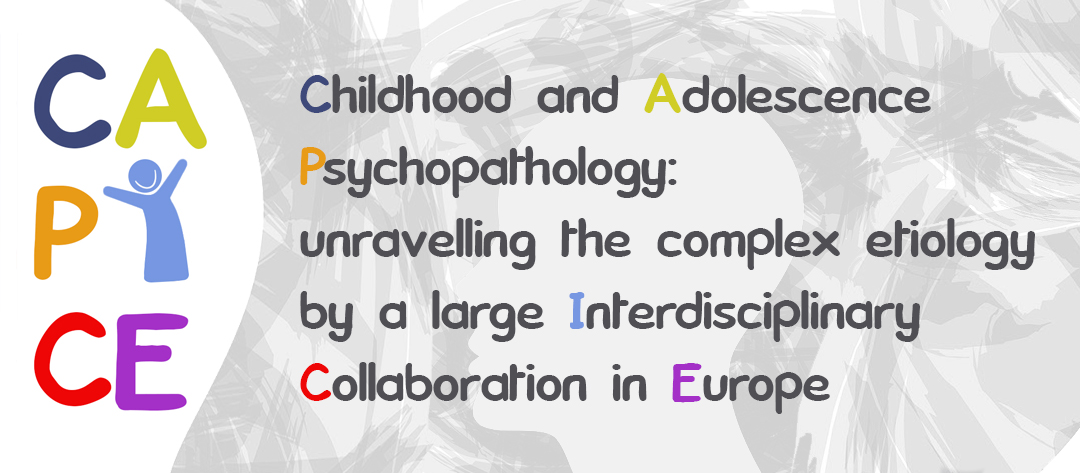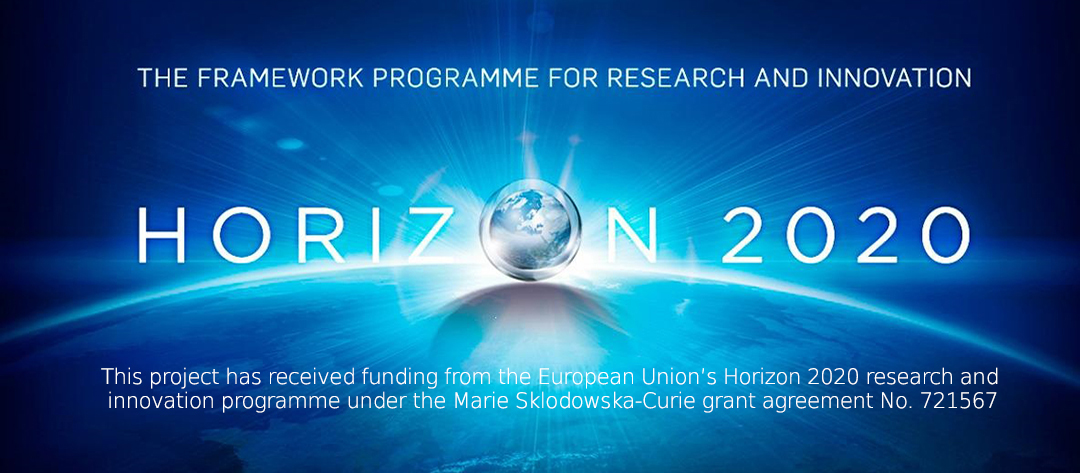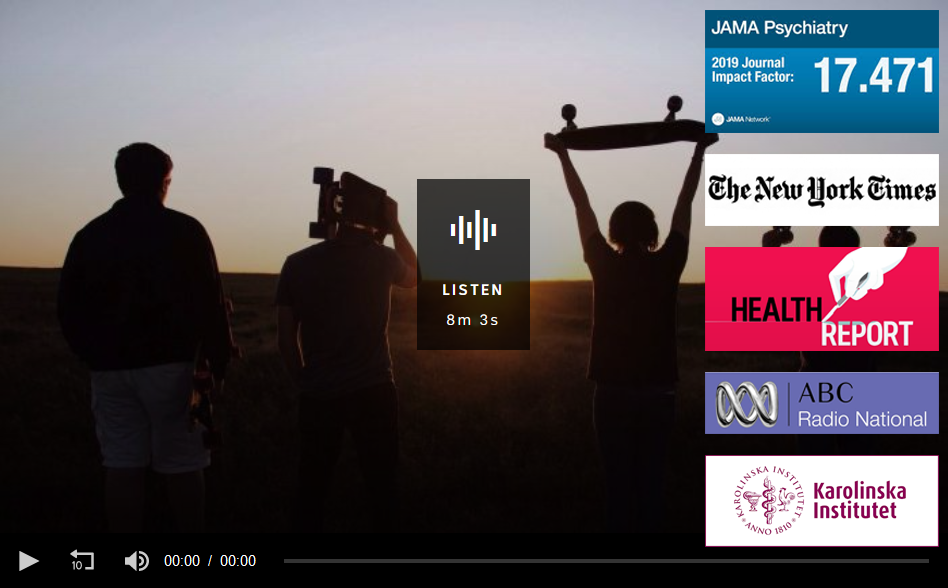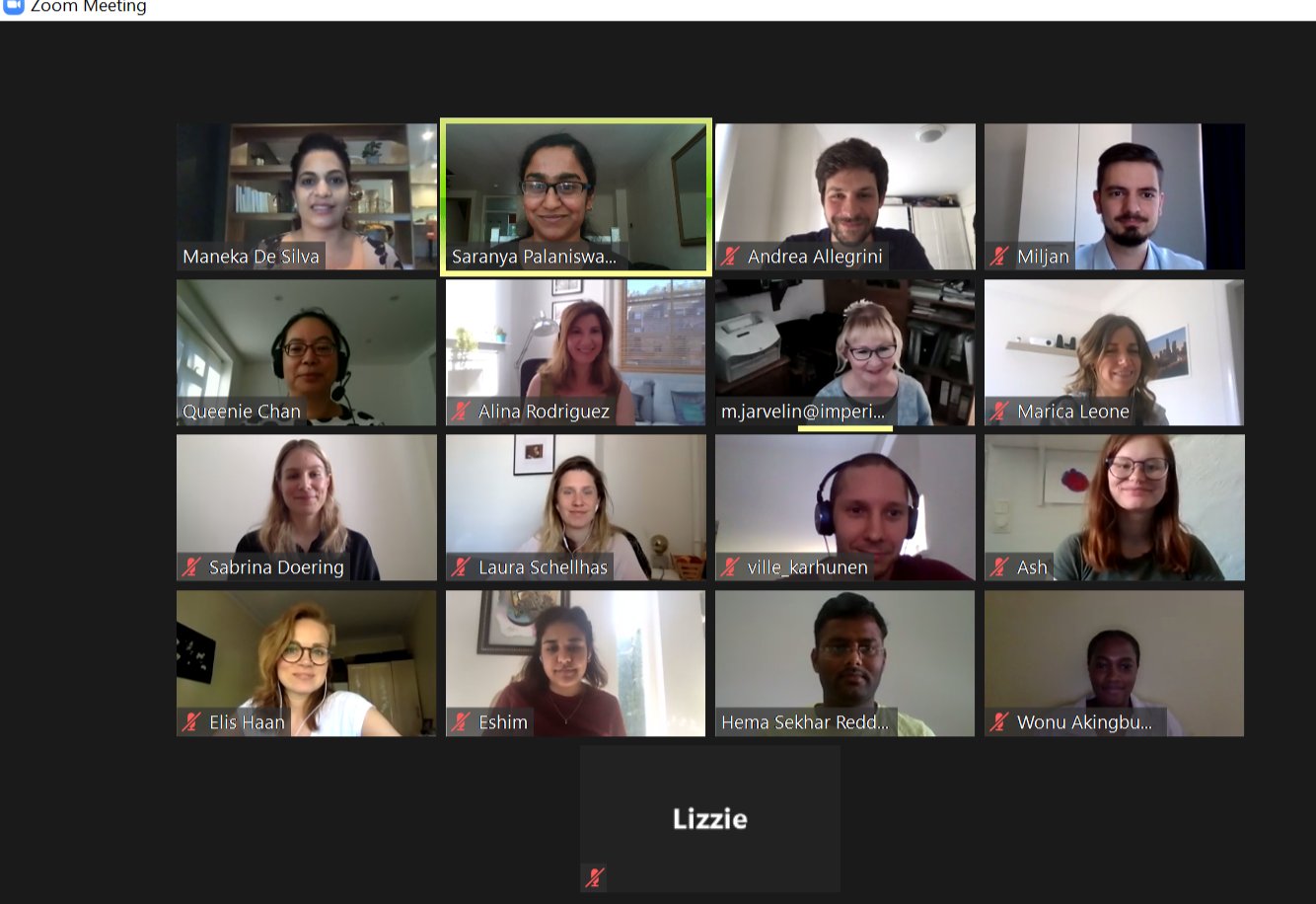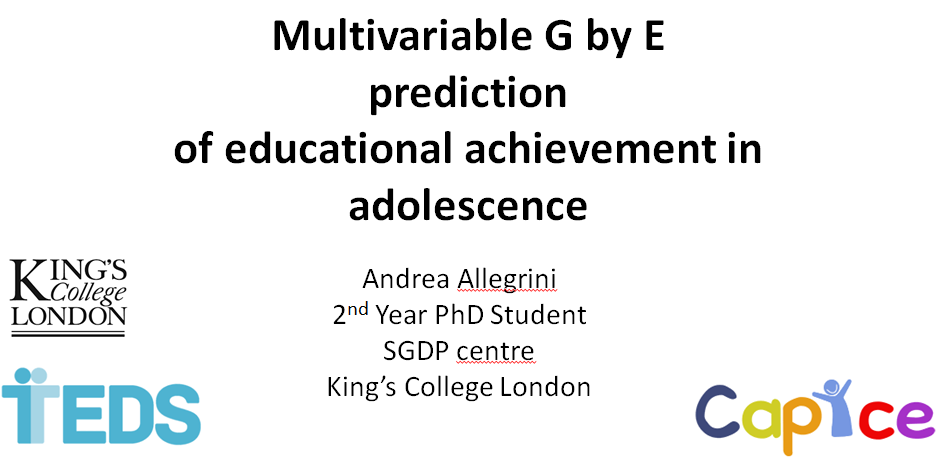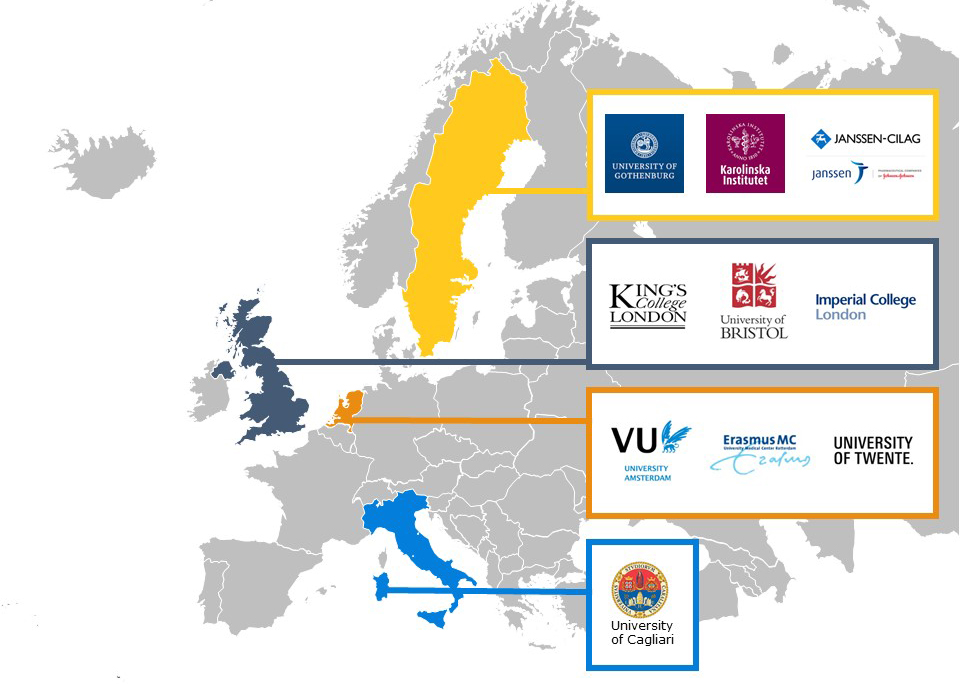All 12 PhD students (ESRs) involved in the CAPICE project attended the first project's Workshop on genetics and developmental psychopathology at King's College London for three days from 22-24 January 2018. It was a fantastic opportunity for us to meet each other and Coordinator Prof. Christel Middeldorp, (an interview with her is available in this article) Prof. Meike Bartels and Prof. Robert Plomin (an interview with him is available in this article) at the workshop. It was a good experience to us to listen to the talks of world-experts in the field of genetics and developmental psychopathology.
During the first day of the workshop, there were these lectures: History of behavioral genetics and top 10 findings by Prof. Robert Plomin; Interview with Professor Sir Michael Rutter who is called as the father of child psychology and first professor of child psychiatry in the United Kingdom; Twin methods: Basics of adoption and twin designs / univariate and bivariate models by Dr. Kaili Rimfeld; Twin methods: Multivariate models by Dr. Laurie Hannigan; Twin methods: Co – TEDS by Dr. Tom McAdams.
During the second day of the workshop, there were lectures on Gene-environment correlation and interaction in the development and treatment of anxiety and depression by Dr. Thalia Eley, followed by Prof. Christel Middeldorp who has given the lecture on ‘The role of genetic and other familial factors in psychiatric symptoms across the lifespan’. The developmental interplay between genes and environment lecture has taken by Dr. Louise Arseneault. Prof. Christel Middeldorp and Prof. Meike Bartels introduced the CAPICE project and each ESR shortly described their project.
Then there were a lab tour and brain bank tour in the late afternoon. They explained us about the brain bank and structure of the brain. We have seen the human brain, slices of it, observed the difference between normal brain and tumor brain, DNA structure, Microarray chips and Illumina sequencing machine. We had a dinner at The Shard (London Bridge) with all ESRs, Coordinator Prof. Christel Middeldorp, Prof. Meike Bartels and Prof. Robert Plomin.
During the third day of the workshop, there were lectures on these topics: Finding genes by Dr. Cathryn Lewis; Polygenic scores-hype or hope? By Dr. Paul O’Reilly; Polygenic scores-methods by Joni Coleman; Future of polygenic scores by Prof. Gerome Breen.
We have taken the pictures and short videos during the workshop: in this page we would like to make available a short video from Prof. Christel Middeldorp about the goals of CAPICE project and a short video from Prof. Robert Plomin about the aim and importance of this workshop, available also in our social channels. All the ESRs thank the organizers of this workshop starting from Prof. Robert Plomin, Dr. Kaili Rimfeld, Andrea Giuseppe Allegrini who is a PhD student of CAPICE project from host institute.

